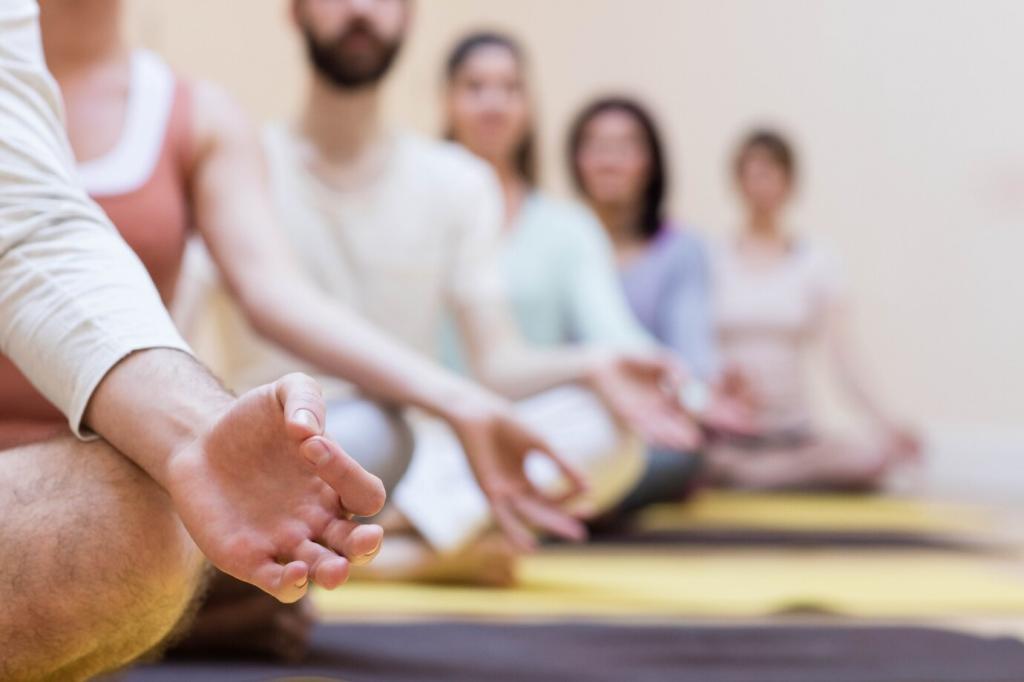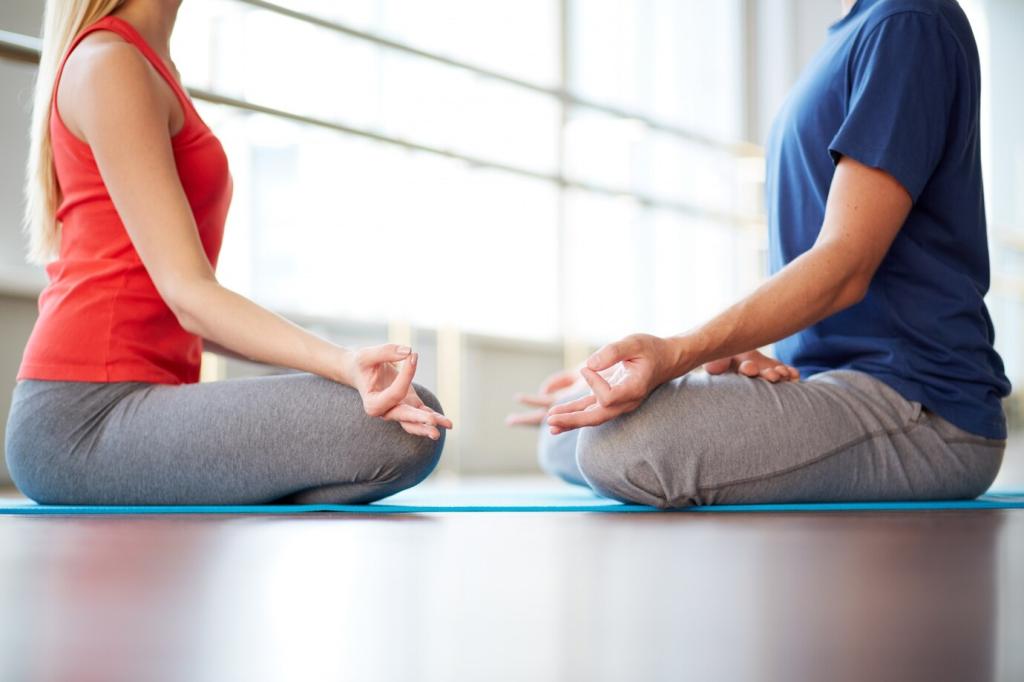
Daily Meditation Practices for a Balanced Life
Discover how daily meditation can become your foundation for a balanced, harmonious life. Engaging in mindful practices helps cultivate calmness, focus, and lasting well-being. This comprehensive guide explores essential meditation habits, techniques, and insights, offering you practical ways to integrate mindfulness into every day for renewed energy and inner peace.
The Importance of Daily Meditation
01
Mindfulness is the cornerstone of any meditation practice, inviting you to pay attention to the present moment with acceptance and openness. Through daily meditation, the noisy distractions of the mind begin to fade, making room for clarity and purpose. Mindfulness grows stronger with each session, allowing you to bring greater awareness and intention into your everyday actions and decisions. This cultivated presence doesn’t just benefit you on the meditation cushion—it ripples into relationships, work, and every corner of life.
02
The transformative power of meditation comes from regularity, not from achieving a “perfect” state every time you close your eyes. It’s normal for the mind to wander; the key is returning, gently, to the present moment. By making meditation part of your daily routine—whether for five minutes or fifty—you establish a gentle discipline that gradually brings greater calm, balance, and inner strength. The gentle accumulation of daily effort is what ultimately yields lasting results.
03
Daily meditation helps you navigate the wide spectrum of human emotions with greater ease and equanimity. Rather than resisting difficult feelings or getting swept away by them, meditation cultivates the capacity to observe emotions with compassion and curiosity. Over time, this creates emotional resilience, empowering you to respond to challenges with grace. Instead of being ruled by reactivity, you learn to pause, breathe, and choose how you wish to show up in every moment.

Establishing a Calming Atmosphere
The atmosphere of your meditation space should evoke a sense of serenity and ease, reinforcing your commitment to the practice. This might involve choosing soothing colors, introducing gentle lighting, or simply ensuring the area is clean and uncluttered. The more your space invites relaxation, the easier it becomes to settle into meditation each day. Over time, your mind begins associating this space with tranquility, making it easier to enter a meditative state.

Personalizing Your Meditation Area
Make your space resonate with personal meaning by incorporating objects that inspire peace or reflection. This could be a favorite cushion, a meaningful photograph, or a small plant. Adding personal touches can help ground your practice and make meditation feel like a nurturing act of self-care. When your environment reflects your intentions, returning to your practice becomes not just a routine, but a welcome retreat from life’s busyness.

Minimizing Distractions for Deeper Focus
One of the biggest obstacles to consistent meditation is distraction, whether from devices or household noises. Creating a distraction-free zone helps your mind drop more quickly into stillness. This might mean silencing notifications, closing doors, or practicing at a quieter time of day. Prioritizing a focused environment increases the likelihood of a restorative practice, allowing you to immerse fully in the present and emerge feeling renewed.
Previous
Next
Loving-Kindness Meditation (Metta)
Loving-kindness meditation, or Metta, invites you to silently repeat phrases that wish happiness, safety, and health upon yourself and others. Practicing this form of meditation consistently helps break down barriers of separation, replacing them with empathy and connection. Over time, Metta fosters resilience against negativity, making it easier to forgive and let go of grudges. This gentle practice reminds you of your capacity for love, deepening a sense of belonging and peace.
Self-Compassion Meditation
Self-compassion meditation centers on treating yourself with the same care and kindness you would offer a dear friend. This might involve acknowledging a difficult emotion without judgment or placing a gentle hand on your heart in moments of struggle. Through daily self-compassion practice, you cultivate the courage to face mistakes and setbacks with understanding, rather than harsh criticism. As self-compassion grows, so does your ability to recover from adversity and maintain emotional balance.
Compassion for Others Practice
Extending compassion beyond yourself is a transformative aspect of meditation. Visualizing loved ones, acquaintances, and even those with whom you experience conflict, you offer silent wishes of well-being. This daily act strengthens empathy, weakens feelings of anger or resentment, and builds a habit of kindness throughout your day. By committing to compassion for others, you begin to notice the shared humanity that connects you to everyone around you.
Gentle Yoga for Mind-Body Harmony
Gentle yoga offers a seamless pathway to mindfulness, guiding you to synchronize breath with slow, deliberate movement. This daily practice brings awareness to how your body feels in each moment, revealing hidden stress or discomfort. Over time, gentle yoga enhances flexibility, eases chronic tension, and deepens the meditative state. It is an accessible way to cultivate mindful presence, preparing both body and mind for seated meditation or simply infusing your day with calm.
Walking Meditation for Present-Moment Awareness
Walking meditation transforms a simple, everyday activity into a powerful practice of awareness. By focusing on the sensation of each footstep, the rhythm of your breath, and the movement of your body, you train your attention to settle in the here and now. Practiced daily, walking meditation develops groundedness and helps release nervous energy, making it a perfect choice for those who struggle with stillness. This practice proves that meditation is possible anywhere, anytime.
Integrating Mindfulness Into Everyday Activities
Mindful Eating for Greater Satisfaction
Mindful eating involves paying close attention to the experience of nourishing yourself—savoring textures, tastes, and the body’s hunger cues. Instead of distracted or hurried meals, you learn to slow down, appreciate each bite, and tune into your body’s needs. This mindful approach can improve digestion, foster gratitude, and help build a balanced relationship with food. Making eating a meditative act elevates daily nourishment into a source of pleasure and self-care.
Mindful Communication for Better Relationships
Practicing mindfulness in your conversations leads to deeper, more authentic connections with others. By listening attentively, pausing before responding, and speaking with intention, you bring presence and care into relationships. Over time, mindful communication can defuse misunderstandings and foster empathy, trust, and mutual respect. Integrating this practice daily transforms interactions into moments of connection, strengthening both personal and professional bonds.
Mindful Work for Increased Productivity
Bringing mindfulness into your workday enhances focus, creativity, and resilience under pressure. Instead of multitasking or working on autopilot, you consciously engage with each task, setting clear intentions and gently redirecting attention when distracted. This approach reduces overwhelm, increases efficiency, and cultivates a sustainable pace. Practicing mindful work every day transforms your relationship with productivity, making space for achievement and well-being to coexist.
Overcoming Common Meditation Challenges
01
Dealing with a Busy Mind
A restless, wandering mind is perhaps the most common challenge beginners and experienced meditators alike encounter. Instead of battling your thoughts, meditation encourages you to observe them as passing clouds, returning your focus gently to your chosen anchor—be it the breath or bodily sensations. Over time, the mind naturally begins to settle, and you learn that you are not your thoughts. With consistent practice, moments of stillness become more frequent, instilling a profound sense of inner calm.
02
Making Time for Daily Practice
Finding time for meditation in a busy schedule often feels daunting, but even moments of mindfulness can make a meaningful difference. By prioritizing meditation as you would any essential commitment, you send a powerful message to yourself about the value of self-care. Flexibility is key—morning meditations, midday pauses, or pre-bed rituals can all support your well-being. With creativity and patience, your practice becomes woven into the fabric of your life.
03
Releasing Expectations and Judgments
Many people begin meditating with preconceived notions or goals, such as attaining perfect stillness or constant bliss. When results don’t match these expectations, it’s easy to feel discouraged. Meditation teaches you to let go of striving, bringing an attitude of non-judgment to your experience. Each session is valuable, regardless of how peaceful or distracted you may feel. Over time, releasing expectations creates space for genuine transformation and enjoyment of the present moment.
